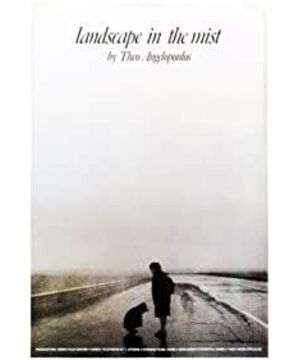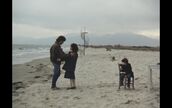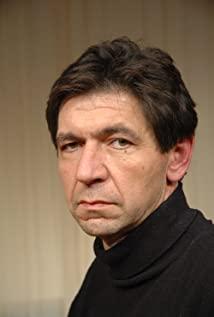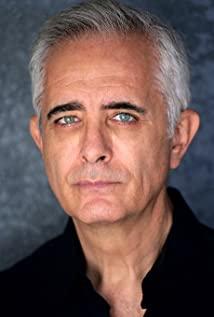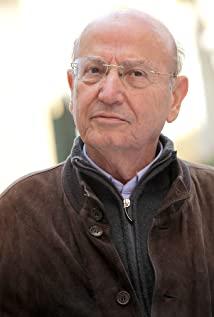George Herbert's words are what I read from an article about John Donne. John Donne and the former are contemporaries, and he has been supporting the above sentence almost all his life. Jack London later repeated this sentence, and his life even has some similarities with John Donne: a "plague" escape from the death led to John Donne's "Meditations", and bad blood Zheng “forced” Jack London into a professional writer.
In 1988, the Greek director Theo Angelopoulos once again used film language to tell us "Why that"... The
five-year-old Alexander and his twelve-year-old sister Ula, they accidentally got from their mother. I heard that they had a father in Germany, but this father, whom he had never met, appeared in Alexander's dream almost every night. Both children "missed" their father very much. You must know that at the end of the 1980s when everything was inevitably involved in the turmoil, a family without a man and without a father should stand steadily in that stormy society. , It must be very difficult.
It's a pity that the two children didn't know that everything about Germany and their father was just a bitter lie. They are illegitimate children, and they don't even know who their father is.
Every night, Ula took his brother to the railway station to see the 290 trains that had left Germany. Finally, one day, they made up their minds, and for the first time they were able to look at the platform they were already familiar with from the train window...
They are not riding on the Polar Express. They live in a country where Greece has produced world-shaking tragedies such as "Medea" and "Oedipus King". They are two people who don't understand spells and don't have "Light Wheel 2000". Ordinary children flying broomsticks, this is destined to be a trip full of loss, hurt, hunger, confusion, regret, and tears.
After being driven off the bus by the ticket inspector for the first time, they were taken to their uncle, but the uncle was unwilling to take in the two children (of course they did not give up the dream of going to Germany), so they came to the police station and probably Escaped in the "unprecedented" snow, and ran past pedestrians standing like statues...
The second time, on the cold night after the heavy snowfall, they met a bride and a dying horse who had escaped from the wedding and was arrested. In front of the struggling horse, Alexander wept bitterly. I think he was probably It's the first time to witness death so close. His crying is accompanied by the accordion behind the wedding celebration...
just this time in the process of searching for the next platform, they met the only sunshine in this gloomy, damp movie-the kind troupe actors Orestes. But the process of this encounter was heartbreaking:
Wula led her younger brother to appear from the end of the road far away. Compared with the mountains on both sides of which were filled with the entire lens, the two children were like two poor and faint black spots. They came slowly, and a light blue car that could be described as old was parked on the side of the road. The two children were obviously tired from walking, staring at the car like a hungry child staring at bread, so that when Orestis suddenly appeared from the other side of the car, the two were approaching the car unconsciously. The child took a step back suddenly. Orestis found the siblings and asked with concern why they appeared in such a wilderness and offered to take them to the city. The two children didn't answer. This was probably their first long journey, and the world around them had never been as strange as it is now. Strangeness means fear, so Wula lowered her head and pulled her brother whose eyes were still stuck to the car, and reluctantly prepared to leave. "There are still many places behind the car." Orestis invited again. Wula stopped and looked at her toes. There must be thoughts that could help her make decisions constantly flashing in her mind. She raised her head, took a strong breath, and then lowered her head to look at her brother whose eyes were full of intentions. Turn right and walk towards the car slowly, still bowing his head. "I'm not a cannibal" Orestis tried to see the suspicions of the brothers and sisters. Before this joke, my tears have already crawled into my eyes...
At this point, the film happened to be a quarter of it. Encountering Orestis is not the end of suffering. After using the above-mentioned long shot of a movie that does not exceed two minutes, I am no longer willing to use words to recall the experience of the brothers and sisters. This movie made me cry here, and this is the only time in this movie. For the next three-quarters, I was also moved, shocked, angry, and sad, but after passing through the initial complex stage, I have begun to accept the suffering that fell on the two children. Acceptance does not mean numbness, let alone approval, but knowing that it is inevitable.
I am extremely reluctant to regard this tragic trip of the two sisters and brothers as a must-go rite for everyone. I even feel that my initial view is too sloppy-yes, Theo Angelopoulos Tell us "why", but this is not over yet, the Greek director is not trying to give a fatalistic definition of life. The ancient Greeks were once the most confident people in the world. They are the descendants of half-humans and half-gods. Their heroes are more stalwart than the gods, and their post-agents should give the world a bright future. Yes, that land has the greatest tragedy, but the tragedy of ancient Greece is obviously different from other places. If the tragedies elsewhere are for people to recognize and adapt to the tragedy, then only the tragedy of ancient Greece is for Let people avoid and fight against tragedies! "Media" is to warn the human desire for restraint, "Oedipus" is to persuade human beings to face their own destiny, "Orestia" tells people the fundamentals of right and wrong, beauty and hatred, love and hate Not an eternal opposition. Look, none of the three most famous tragedies are purely negative, and none is not as Aristotle said-"tragedies are used to purify our spirit and soul."
So, what exactly does Angelopoulos want to say? It is said that this film was used by him as a gift to his seven-year-old daughter, so his own words can best explain the problem: "If you want, you can recreate the world. Just like this, with a light wave of your hand, the fog will disappear. ."
---------aima 8.6.2006
View more about Landscape in the Mist reviews


